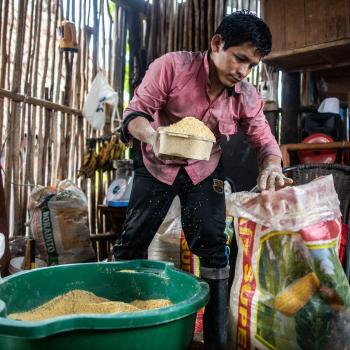
To mark 10 years of the Sustainable Development Goals (SDGs), Young Lives is launching a brand-new series of interactive reports.
These reports aim to inform global SDG discussions by examining the progress - and challenges – experienced by study participants from infancy to adulthood.
We start with a life course look at SDG2 (Zero Hunger) & SDG3 (Good Health & Well-being), using Young Lives’ unique longitudinal data and cross-country comparisons to track progress and challenges from infancy to adulthood.
Our findings highlight the following policy priorities:
- Encourage consistent data collection on all types of malnutrition, beyond age 5.
- Pay closer attention to the transition period from adolescence to adulthood, when key challenges can emerge.
- Address the current lack of specific SDG targets and indicators on overweight and obesity in older children, adolescents and adults and the double burden of malnutrition.
- Support and protect essential data collection and monitoring systems in the face of funding cuts and uncertainty.
Read the full report Beyond Age 5: Tracking Progress and Challenges in Hunger, Nutrition and Health (SDGs 2 & 3) via the button below.
Further reports will follow over the coming weeks.

To mark 10 years of the Sustainable Development Goals (SDGs), Young Lives is launching a brand-new series of interactive reports.
These reports aim to inform global SDG discussions by examining the progress - and challenges – experienced by study participants from infancy to adulthood.
We start with a life course look at SDG2 (Zero Hunger) & SDG3 (Good Health & Well-being), using Young Lives’ unique longitudinal data and cross-country comparisons to track progress and challenges from infancy to adulthood.
Our findings highlight the following policy priorities:
- Encourage consistent data collection on all types of malnutrition, beyond age 5.
- Pay closer attention to the transition period from adolescence to adulthood, when key challenges can emerge.
- Address the current lack of specific SDG targets and indicators on overweight and obesity in older children, adolescents and adults and the double burden of malnutrition.
- Support and protect essential data collection and monitoring systems in the face of funding cuts and uncertainty.
Read the full report Beyond Age 5: Tracking Progress and Challenges in Hunger, Nutrition and Health (SDGs 2 & 3) via the button below.
Further reports will follow over the coming weeks.

